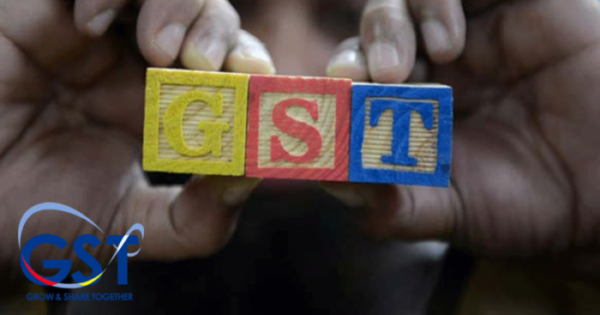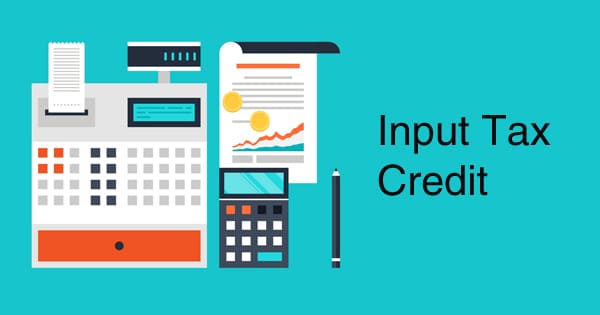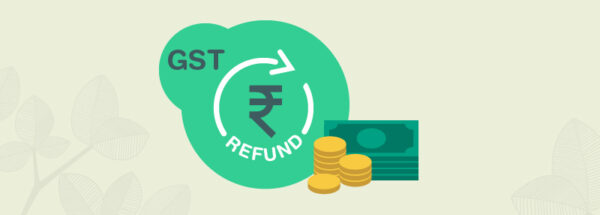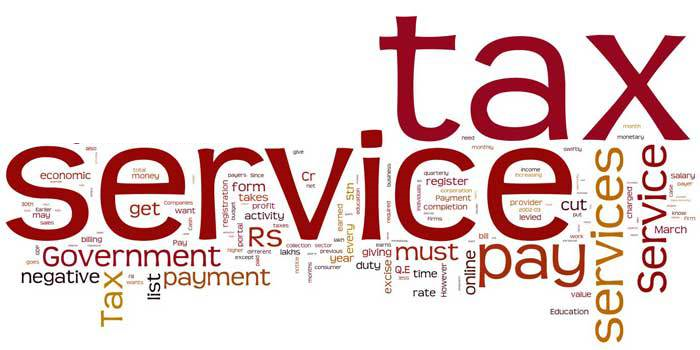The Central Board of Indirect Taxes and Customs (CBIC) has vide Notification No. 92/2020-Central Tax dated 22-12-2020 has enforced the nine amendments made by Finance Act, 2020.
The Central Government has vide above Notification has appointed 1 January, 2021, as the date on which the provisions of sections 119, 120, 121, 122, 123, 124, 126, 127 and 131 of the Finance Act, 2020 shall come into force.
In this article we will discuss about each of the above provision and will try to analyse the impact of the amendment.
1. Section 119 : Amendment in Composition Scheme (Section 10(2) of the CGST Act, 2017)
Section 119 of the Finance Act, 2020 sought to insert the words “or services” after the words “of goods” in section 10(2) of the CGST Act,2017.
For ready reference the Section 10(2) of the CGST Act, 2017 before and after amendment is tabulated below:
| Before Amendment | After Amendment |
| (2) The registered person shall be eligible to opt under sub-section (1), if:— (a) save as provided in sub-section (1), he is not engaged in the supply of services; (b) he is not engaged in making any supply of goods which are not leviable to tax under this Act; (c) he is not engaged in making any inter-State outward supplies of goods; (d) he is not engaged in making any supply of goods through an electronic commerce operator who is required to collect tax at source under section 52; (e) he is not a manufacturer of such goods as may be notified by the Government on the recommendations of the Council; and (f) he is neither a casual taxable person nor a non-resident taxable person | (2) The registered person shall be eligible to opt under sub-section (1), if :— (a) save as provided in sub-section (1), he is not engaged in the supply of services; (b) he is not engaged in making any supply of goods or services which are not leviable to tax under this Act; (c) he is not engaged in making any inter-State outward supplies of goods or services; (d) he is not engaged in making any supply of goods or services through an electronic commerce operator who is required to collect tax at source under section 52; (e) he is not a manufacturer of such goods as may be notified by the Government on the recommendations of the Council; and (f) he is neither a casual taxable person nor a non-resident taxable person |
It may be noted here that second proviso to Section 10(1) of the CGST Act, 2017 allows the person paying tax under Composition Scheme to make Supply of services upto 10% of turnover in a State or UT in the preceding financial year or Rs 5 lakh , whichever is higher.
Due to above amendment apart from above condition, a composition supplier cannot:
a) Supply services which are not leviable to tax under the CGST Act, 2017;
b) Engage into Inter-state Supply of services;
c) Supply services through an electronic commerce operator who is required to collect tax under Section 52 of the CGST Act, 2017.
2. Section 120 : Time limit to avail ITC against Debit Note de-linked with the date of Invoice (Section 16 of the CGST Act)
Section 120 of the Finance Act, 2010 has omitted the words “invoice relating to such” from the section 16(4) of the CGST Act,2017.
For ready reference the Section 16(4) of the CGST Act, 2017 before and after amendment is tabulated below:
| Before Amendment | After Amendment |
| SECTION 16. Eligibility and conditions for taking input tax credit (4) – A registered person shall not be entitled to take input tax credit in respect of any invoice or debit note for supply of goods or services or both after the due date of furnishing of the return under section 39 for the month of September following the end of financial year to which such invoice or invoice relating to such debit note pertains or furnishing of the relevant annual return, whichever is earlier. | SECTION 16. Eligibility and conditions for taking input tax credit (4) – A registered person shall not be entitled to take input tax credit in respect of any invoice or debit note for supply of goods or services or both after the due date of furnishing of the return under section 39 for the month of September following the end of financial year to which such invoice or |
Section 16(4) of the CGST Act, 2017 provided a time limit for availing Input Tax Credit with respect to an invoice or debit note. The time limit for availing Input Tax Credit against a debit note was linked with the date of invoice against which such debit note was issued.
For example: Suppose an invoice was issued in FY 2019-20 and a debit note against the said invoice was issued in November 2020, than the recipient of supply shall not be eligible to avail Input Tax Credit based on such debit note as the due date for availing Input Tax Credit was the due date of furnishing of the GSTR-3B for the month of September following the end of financial year to which such invoice relating to such debit note pertains.
Now with the above amendment the time limit for availing of ITC in respect of a debit note has ben delinked from the date of invoice and time limit for availing of ITC shall be determined considering the date of the debit note. Due to this amendment, the credit loss as arising in above example would be obviated.
3. Section 121 : Person who opted for Voluntary Registration can apply for Cancellation of Registration (Section 29 of the CGST Act)
| Before Amendment | After Amendment |
| SECTION 29. Cancellation or suspension of registration (1) The proper officer may, either on his own motion or on an application filed by the registered person or by his legal heirs, in case of death of such person, cancel the registration, in such manner and within such period as may be prescribed, having regard to the circumstances where, — (a) the business has been discontinued, transferred fully for any reason including death of the proprietor, amalgamated with other legal entity, demerged or otherwise disposed of; or (b) there is any change in the constitution of the business; or (c) the taxable person, other than the person registered under sub-section(3) of section 25, is no longer liable to be registered under section 22 or section 24 | SECTION 29. Cancellation or suspension of registration (1) The proper officer may, either on his own motion or on an application filed by the registered person or by his legal heirs, in case of death of such person, cancel the registration, in such manner and within such period as may be prescribed, having regard to the circumstances where, — (a) the business has been discontinued, transferred fully for any reason including death of the proprietor, amalgamated with other legal entity, demerged or otherwise disposed of; or (b) there is any change in the constitution of the business; or (c) the taxable person is no longer liable to be registered under section 22 or section 24 or intends to opt out of the registration voluntarily made under sub-section (3) of section 25 |
The effect of the above amendment is that the person who has taken voluntary registration under Section 25(3) of the CGST Act, 2017, who was otherwise not required to get registered under Section 22 or Section 24 of the CGST Act, 2017, can now apply for cancellation of registration which was not permissible earlier.
4. Section 122 : Provision for Condonation of Delay in filing application for Revocation of Cancellation (Section 30 of the CGST Act).
Section 30 contains provisions regarding revocation of cancellation of registration and same has been amended by Section 122 of the Finance Act,2020. The provision before and after amendment is tabulated below:
| Before Amendment | After Amendment |
| SECTION 30. Revocation of cancellation of registration (1) Subject to such conditions as may be prescribed, any registered person, whose registration is cancelled by the proper officer on his own motion, may apply to such officer for revocation of cancellation of the registration in the prescribed manner within thirty days from the date of service of the cancellation order: Provided that the registered person who was served notice under sub- section (2) of section 29 in the manner as provided in clause (c) or clause (d) of sub-section (1) of section 169 and who could not reply to the said notice, thereby resulting in cancellation of his registration certificate and is hence unable to file application for revocation of cancellation of registration under sub-section (1) of section 30 of the Act, against such order passed up to 31-3- 2019, shall be allowed to file application for revocation of cancellation of the registration not later than 22-7-2019. | SECTION 30. Revocation of cancellation of registration (1) Subject to such conditions as may be prescribed, any registered person, whose registration is cancelled by the proper officer on his own motion, may apply to such officer for revocation of cancellation of the registration in the prescribed manner within thirty days from the date of service of the cancellation order: Provided that such period may, on sufficient cause being shown, and for reasons to be recorded in writing, be extended,— (a) by the Additional Commissioner or the Joint Commissioner, as the case may be, for a period not exceeding thirty days; (b) by the Commissioner, for a further period not exceeding thirty days, beyond the period specified in clause (a) |
Section 30(1) of the CGST Act, 2017 provides that if the registration of any person has been canceled suomotu by the proper officer than such person can apply for revocation of cancellation within 30 days of the order of cancellation. Many taxpayers faced difficulty to revoke the cancellation as they could make the revocation application within 30 days from the service of the order and the proper officer had no authority to condone the delay.
Now such period can be extended upto 30 / 60 days on reasonable cause by AC / JC or Commissioner.
5. Section 123 : Power of Central Government widened with respect to Tax Invoice (Section 31 of the CGST Act,2017)
Section 31(2) of the CGST Act,2017 has been amended by Section 123 of the Finance Act,2017. For ready reference the provision before and after amendment is tabulated below:
| Before Amendment | After Amendment |
| SECTION 31. Tax invoice (2)– A registered person supplying taxable services shall, before or after the provision of service but within a prescribed period, issue a tax invoice, showing the description, value, tax charged thereon and such other particulars as may be prescribed: Provided that the Government may, on the recommendations of the Council, by notification and subject to such conditions as may be mentioned therein, specify the categories of services in respect of which — (a) any other document issued in relation to the supply shall be deemed to be a tax invoice; or (b) tax invoice may not be issued. | SECTION 31. Tax invoice (2)– A registered person supplying taxable services shall, before or after the provision of service but within a prescribed period, issue a tax invoice, showing the description, value, tax charged thereon and such other particulars as may be prescribed: Provided that the Government may, on the recommendations of the Council, by notification,— (a) specify the categories of services or supplies in respect of which a tax invoice shall be issued, within such time and in such manner as may be prescribed; (b) subject to the condition mentioned therein, specify the categories of services in respect of which— (i) any other document issued in relation to the supply shall be deemed to be a tax invoice; or (ii) tax invoice may not be issued. |
The proviso to Section 31(2) of the CGST Act has been amended to widen the powers to the Central Government to notify the categories of services in respect of which a tax invoice shall be issued within such time and in such manner as may be prescribed.
Thus, the Central Government can now even prescribe a different time limit for issuance of tax invoices for such categories of services as may be notified.
6. Section 124 : Late fee on non / delayed issue of TDS Certificate abolished (Section 51)
Vide Section 124 of the Finance Act, 2017 amendment has been made in Section 51 of the CGST Act, 2017. The provision before and after amendment is tabulated below:
| Before Amendment | After Amendment |
| SECTION 51. Tax deduction at source. — (3) The deductor shall furnish to the deductee a certificate mentioning therein the contract value, rate of deduction, amount deducted, amount paid to the Government and such other particulars in such manner as may be prescribed. (4) If any deductor fails to furnish to the deductee the certificate, after deducting the tax at source, within five days of crediting the amount so deducted to the Government, the deductor shall pay, by way of a late fee, a sum of one hundred rupees per day from the day after the expiry of such five days period until the failure is rectified, subject to a maximum amount of five thousandrupees. | SECTION 51. Tax deduction at source. — (3) A certificate of tax deduction at source shall be issued in such form and in such manner as may be prescribed. (4) |
Section 51(1) of the CGST Act, 2017 mandates certain class of person, specified therein and as notified by the Central Government, to deduct tax at source at the time of making payment to the supplier.
The above amendment provides that the form and manner of issuing certificate for deduction of tax at source shall be provided in the CGST Rules, 2017. Further, the provision imposing late fee for not issuing the certificate within the prescribed time limit has been omitted.
The amendment seems to reduce hardship of the Government as the class of persons liable to deduct tax includes the department of Central or State Government, Local Authorities, Government Agencies and PSUs.
7. Section 126: Insertion of new sub-section (1A) to Section 122 of the CGST Act
Section 122 of the CGST Act, 2017 mandates penalties for certain offences. In this regard vide Section 126 of the Finance Act, 2020, a new sub-section (1A) has been inserted as under:
(1A) Any person who retains the benefit of a transaction covered under clauses (i), (ii), (vii) or clause (ix) of sub-section (1) and at whose instance such transaction is conducted, shall be liable to a penalty of an amount equivalent to the tax evaded or input tax credit availed of or passed on.
Sub Section (1A) has been inserted to Section 122 of the CGST Act, 2017 to provide that the transactions where:
a) any goods or services or both have been supplied without issue of any invoice or issues an incorrect or false invoice with regard to any such supply;
b) any invoice or bill has been issued without supply of goods or services or both in violation of the provisions of the CGST Act, 2017 or the rules made thereunder;
c) input tax credit has been taken or utilised without actual receipt of goods or services or both either fully or partially, in contravention of the provisions of this Act or the rules made thereunder;
d) input tax credit has been taken or distributed in contravention of section 20, or the rules made thereunder
then a person who retains the benefit of the above transaction and at whose instance such transaction is conducted shall be liable to penalty of an amount equivalent to the tax evaded or input tax credit availed of or passed on.
The purpose of the above amendment is to penalize the person who is the ultimate beneficiary of the fraud transactions and the person at whose direction the fraud transaction has been conducted.
8. Section 127 : Beneficiary to be Penalized (Section 132 of the CGST Act)
Amendment has been made in sub-section (1) of Section 132 of the CGST Act, 2017 by Section 127 of the Finance Act, 2020 as under:
| Before Amendment | After Amendment |
| SECTION 132. Punishment for certain offences. — (1) Whoever commits any of the following offences, namely :— (c) avails input tax credit using such invoice or bill referred to in clause (b); (e) evades tax, fraudulently avails input tax credit or fraudulently obtains refund and where such offence is not covered under clauses (a) to (d) | SECTION 132. Punishment for certain offences. — (1) Whoever commits, or causes to commit and retain the benefits arising out of, any of the following offences :— (c) avails input tax credit using the invoice or bill referred to in clause(b) or fraudulently avails input tax credit without any invoice or bill; (e) evades tax, |
The purpose to amend Sub-section (1) of Section 132 of the CGST Act, 2017 is to penalize the person who actually gets benefited from the fraudulent transactions and the person at whose instance such fraudulent transactions are committed.
Also Read: Amendment in CGST Rules, 2017 : 10 Things you should know
9. Section 131 : Amendment in paragraph 4 of Schedule II
Schedule II of the CGST Act, 2017 specifies certain supplies to be regarded as supply of goods or services. Amendment has been made in the Schedule by Section 131 of the Finance Act, 2020 as under:
| Before Amendment | After Amendment |
| SCHEDULE II – Activities or Transactions to be treated as supply of goods or supply of services: 4. Transfer of business assets(a) where goods forming part of the assets of a business are transferred or disposed of by or under the directions of the person carrying on the business so as no longer to form part of those assets, whether or not for a consideration, such transfer or disposal is a supply of goods by the person;(b) where, by or under the direction of a person carrying on a business, goods held or used for the purposes of the business are put to any private use or are used, or made available to any person for use, for any purpose other than a purpose of the business, whether or not for a consideration, the usage or making available of such goods is a supply of services. | SCHEDULE II – Activities or Transactions to be treated as supply of goods or supply of services: 4. Transfer of business assets(a) where goods forming part of the assets of a business are transferred or disposed of by or under the directions of the person carrying on the business so as no longer to form part of those assets, |
The above amendment has been given retrospective effect from 1st July 2017.
In terms of Section 7(1)(c) of the CGST Act, 2017 the transaction or activities which will be deemed to be ‘Supply’ under the CGST Act, 2017 even if made without consideration are already enlisted under Schedule I of the CGST Act, 2017.
The intention of the above amendment may be to remove the possible overlapping of Schedule II into Schedule I of the CGST Act, 2017.
For Reading / Downloading Notification please CLICK HERE
Read quality articles on GST authored by national level experts on the one and only exclusive GST portal CLICK HERE
***
Subscribe our portal and get FREE GST e-books , articles and updates on your e-mail.
Resolve your GST queries from national level experts on GST free of cost.
Frah Saeed is a law graduate specializing in the core field of indirect taxes and is the Co-founder of taxwallah.com. She has authored many publications on GST and is into full-time consultancy on GST to big corporates. She as a part of taxwallah.com heads a team comprising of Chartered Accountants and Advocates and plays a key role in our mission to disseminate GST knowledge to all.




